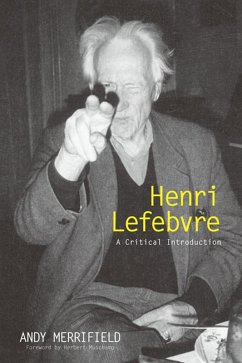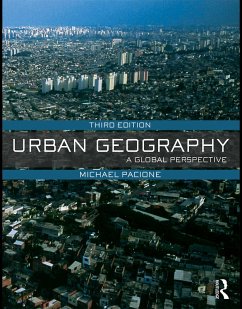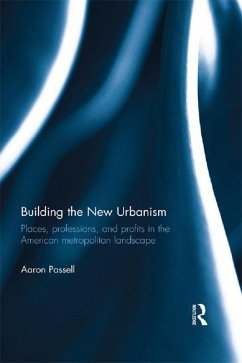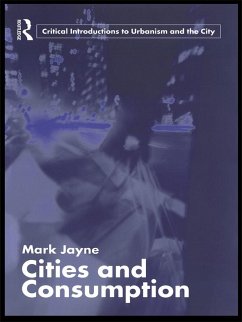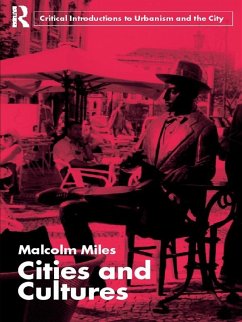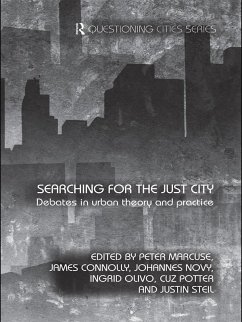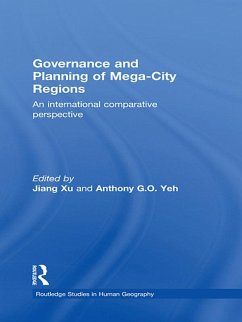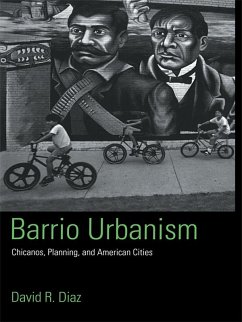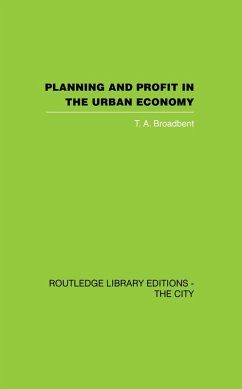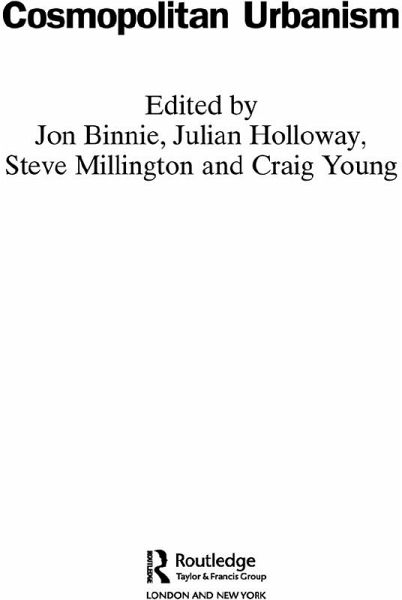
Cosmopolitan Urbanism (eBook, ePUB)
Versandkostenfrei!
Sofort per Download lieferbar
63,95 €
inkl. MwSt.
Weitere Ausgaben:

PAYBACK Punkte
32 °P sammeln!
In order to attract investment and tourism, cities are increasingly competing to re-brand themselves as cosmopolitan, and in recent years, cosmopolitanism has become the focus of considerable critical attention in academia. Here, renowned editors and contributors have come together to produce one of the first books to tackle cosmopolitanism from a geographical perspective.Central to the cosmopolitan process is how traditionally marginalized groups have become re-valued and reconstructed as a resource in the eyes of planners and politicians. This fascinating book examines the politics of these ...
In order to attract investment and tourism, cities are increasingly competing to re-brand themselves as cosmopolitan, and in recent years, cosmopolitanism has become the focus of considerable critical attention in academia. Here, renowned editors and contributors have come together to produce one of the first books to tackle cosmopolitanism from a geographical perspective.
Central to the cosmopolitan process is how traditionally marginalized groups have become re-valued and reconstructed as a resource in the eyes of planners and politicians. This fascinating book examines the politics of these transformations by understanding the everyday practices of cosmopolitanism. Which forms of cultural difference are valued and which are excluded from this re-visioning of the contemporary city? Organized in three distinct parts, the book covers:
The volume is groundbreaking in examining the complex politics of cosmopolitanism in empirical case studies from Montreal to Singapore, London to Texas, Auckland to Amsterdam. With a strong editorial steer, including general and section introductions and a conclusion to guide the student reader, Cosmopolitan Urbanism employs a range of theoretical and empirical approaches to provide a grounded treatment essential for students of human geography, urban studies and sociology.
Central to the cosmopolitan process is how traditionally marginalized groups have become re-valued and reconstructed as a resource in the eyes of planners and politicians. This fascinating book examines the politics of these transformations by understanding the everyday practices of cosmopolitanism. Which forms of cultural difference are valued and which are excluded from this re-visioning of the contemporary city? Organized in three distinct parts, the book covers:
- production and consumption, and cosmopolitanism
- the spatialities of cosmopolitanism
- the deployment, mobilization and articulation of cosmopolitan discourses in policy-making and urban design.
The volume is groundbreaking in examining the complex politics of cosmopolitanism in empirical case studies from Montreal to Singapore, London to Texas, Auckland to Amsterdam. With a strong editorial steer, including general and section introductions and a conclusion to guide the student reader, Cosmopolitan Urbanism employs a range of theoretical and empirical approaches to provide a grounded treatment essential for students of human geography, urban studies and sociology.
Dieser Download kann aus rechtlichen Gründen nur mit Rechnungsadresse in A, B, BG, CY, CZ, D, DK, EW, E, FIN, F, GR, HR, H, IRL, I, LT, L, LR, M, NL, PL, P, R, S, SLO, SK ausgeliefert werden.





